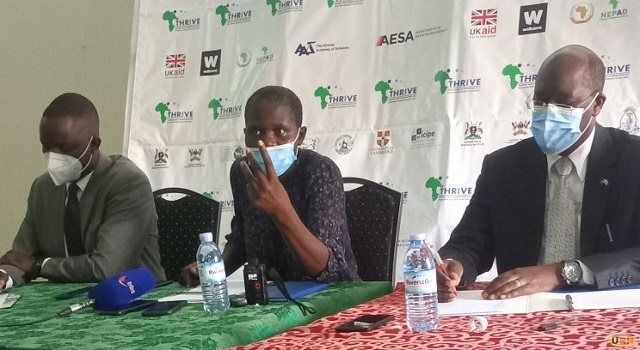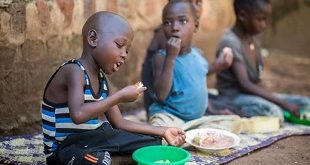
Kampala, Uganda | THE INDEPENDENT | The rate of repeat pregnancies among teenagers stands at 55 percent. This is according to researchers at THRIVE, a science think tank.
Speaking at the launch of the report on Thursday, Dr Dinah Amongin, the lead investigator said that while the government has managed to reduce teenage pregnancy rates from 40% in the last 15 years to 24% now, repeat adolescent births remain very high, a pointer that shows teenagers haven’t been guided on protection against another unwanted pregnancy.
The study shows 55.6% of the mothers that got their first baby at the age of between 15 and 19 years got a second baby before celebrating their 20th birthday. This figure has only reduced slightly from 58.9% 30 years ago.
Apart from quantifying the challenge, researchers sought to explore factors associated with repeat teenage births, their social-economic and reproductive outcomes among women towards the end of their reproductive life course at 40 to 49 years of age. They interviewed women in Soroti and Katakwi districts.
In addition, the researchers analyzed six Uganda Demographic and Health Surveys conducted by the Uganda Bureau of Statistics (UBOS) in 1988/1989, 1995, 2000/1, 2006, 2011 and the latest that was conducted in 2016.
Amongin says most of the women blamed it on poverty for the second baby, alcohol use and lack of basics like sanitary towels and access to contraceptives. But when they tried to establish how these women that had a repeat pregnancy are doing now both socially and economically, they found enduring consequences.
Compared to a teen mother with one child, results show that girls who have a second birth before 20 years are at a greater risk of school discontinuation, greater likelihood of poverty and impaired health of the baby.
Dr Richard Mugahi who heads child and Infant health in the Ministry of Health said that they would use the data in making decisions of what programmes best suit adolescents that get such problems.
Mugahi says that they have adopted a guideline to allow both young girls that get pregnant and those that have had an abortion to access contraceptives.
The findings show by 40 years, a mother who got her first baby as a teenager has an average of five children.
Those that didn’t have a repeat baby before 20 years have a mean of three children and attribute their failure to have another baby on being returned to school after the incidents and stern warnings from their parents and guardians.
Due to the high number of teenagers that got pregnant during the lockdown, the Ministry of Education is preparing a policy that enables teenagers to be easily incorporated back into school.
Another researcher in Maternal and Child Health, Prof. Lynn Atuyambe says they could solve the challenges that come with birthing early on and solve the vicious cycle of poverty arising from repeat births.
Globally however, 43 live births per 1000 happen to girls aged between 15 and 19 years.
*****
URN
 The Independent Uganda: You get the Truth we Pay the Price
The Independent Uganda: You get the Truth we Pay the Price


